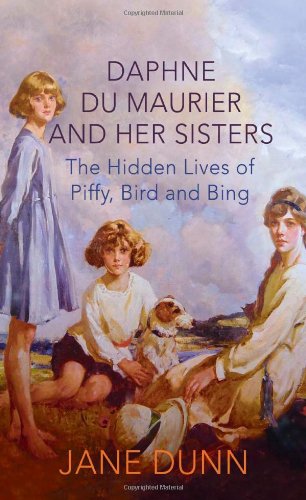
Piffy, Bird & Bing
The Hidden Lives of Daphne du Maurier and her Sisters
کتاب های مرتبط
- اطلاعات
- نقد و بررسی
- دیدگاه کاربران
نقد و بررسی

June 23, 2014
“In biography, families are the soil out of which character grows,” observes Dunn (Virginia Woolf and Vanessa Bell) in this study of novelist Daphne du Maurier (Rebecca) and her much lesser-known siblings: elder sister, Angela, who wrote two memoirs and a novel about lesbian love;, and youngest sister, Jeanne, who became a visual artist. Born to prominent theater family, they grew up among a glamorous set in Edwardian London before moving to Cornwall. Sheltered by their conservative parents, the sisters created a world of make believe and depended on another for companionship. Dunn’s eager, if repetitive narrative follows the sisters as they discover their place in the world, and seek love, vocations, and independence. Not surprisingly, Daphne gets the most attention. However, Angela—who burned much of her correspondence—emerges as a sympathetic figure, almost always in Daphne’s shadow and desperate for love. Angela and Jeanne both found their primary emotional attachments with women, a fact made more astonishing given their father’s horror at any hint of homosexuality. Overall, the author’s affection for her subjects comes through. Illus. Agent: Derek Johns, A.P. Watt.

June 15, 2014
Love and rivalry among three talented sisters.Angela, Daphne and Jeanne du Maurier grew up in a world of make-believe. Their father, Gerald, an actor famous due to his performance in Peter Pan, resisted adulthood and wanted his daughters to remain little girls forever. Their mother, an actress, was distant and often hostile. The three girls were yanked from school when their parents feared they might learn about sex from their classmates and lose their innocence. Isolated, privileged and protected, they knew nothing of the world, even when Britain was roiled by war. Taken to see plays in which Gerald starred, the girls were "treated by the cast and the theatre staff as special mascots." At home, their lives were directed by a father whose "charming gay exterior" often gave way to "the uncertain, dark and flawed human being within." In one of her novels, Daphne created a father who mirrored her own: "He was cruel, he was relentless, he was like some oppressive, suffocating power that stifled her and could not be warded off...." Daphne realized later that her "fugitive sense of self only gained substance in her imagination." She invented a world in which she was a boy "with a boy's mind and a boy's heart, and a boy's love of adventure." As an adult, reluctantly, she "turned into a girl...and the boy was locked in a box and put away forever." Daphne, whose fame as a writer (most notably of the novel Rebecca) eclipsed that of her sisters, was the only one who married and had children. Angela, who wrote novels, short stories and two autobiographies, had lasting relationships with women, as did Jeanne, an artist. The two kept their sexuality hidden from their homophobic parents.In this sensitive group portrait, Dunn (Elizabeth and Mary: Cousins, Rivals, Queens, 2004, etc.) depicts three women struggling to escape Neverland, define for themselves both success and happiness, and hone their own identities.
COPYRIGHT(2014) Kirkus Reviews, ALL RIGHTS RESERVED.

























دیدگاه کاربران